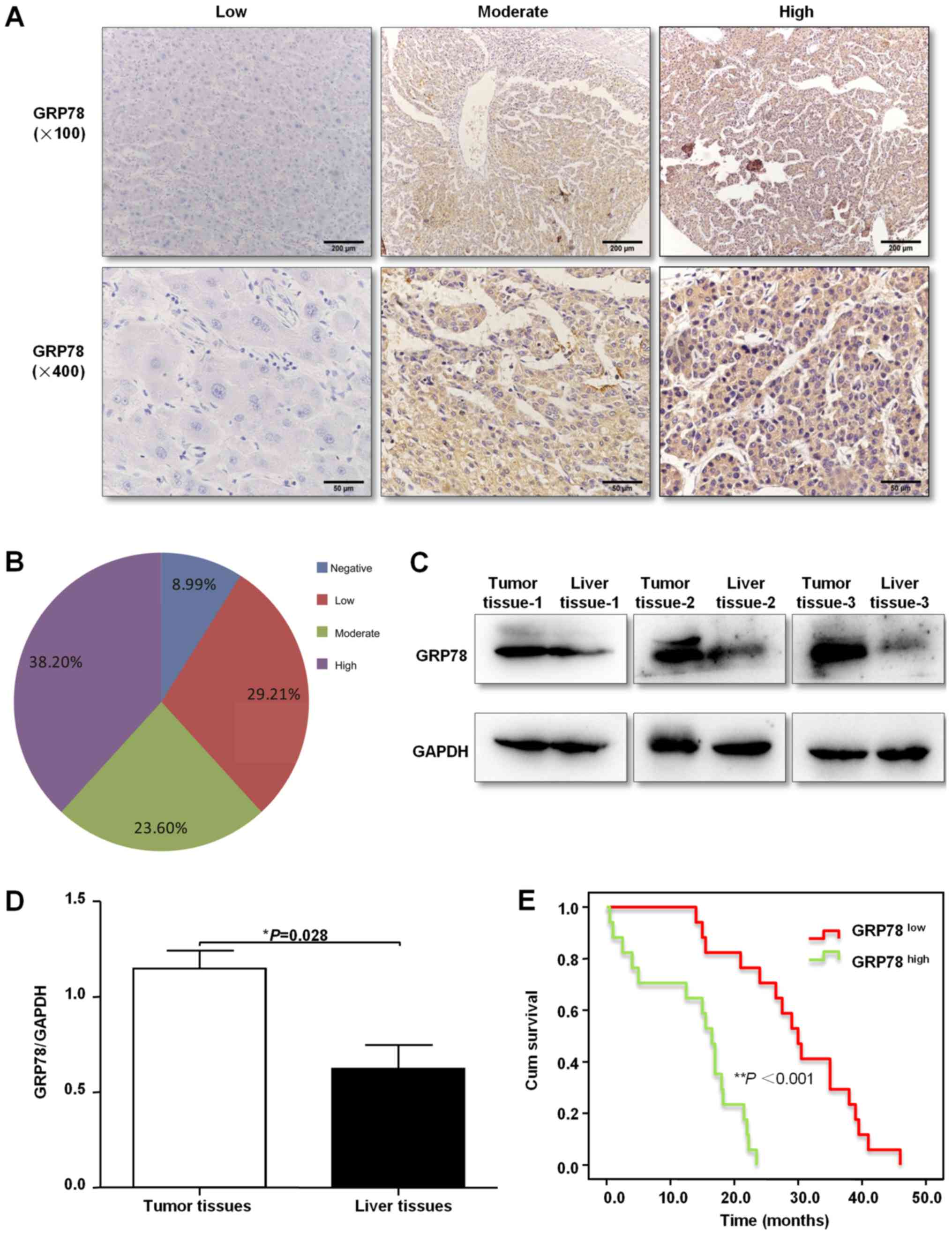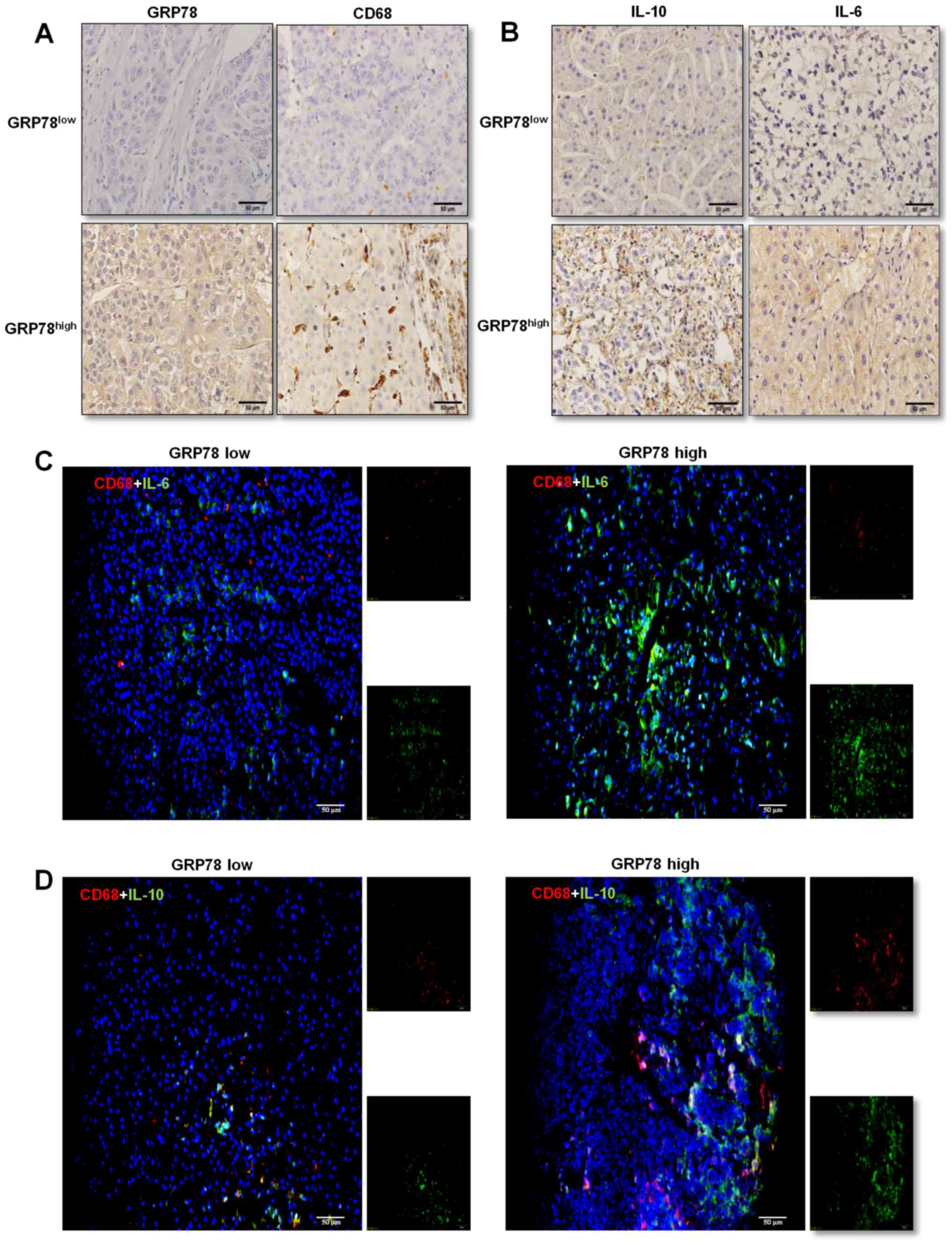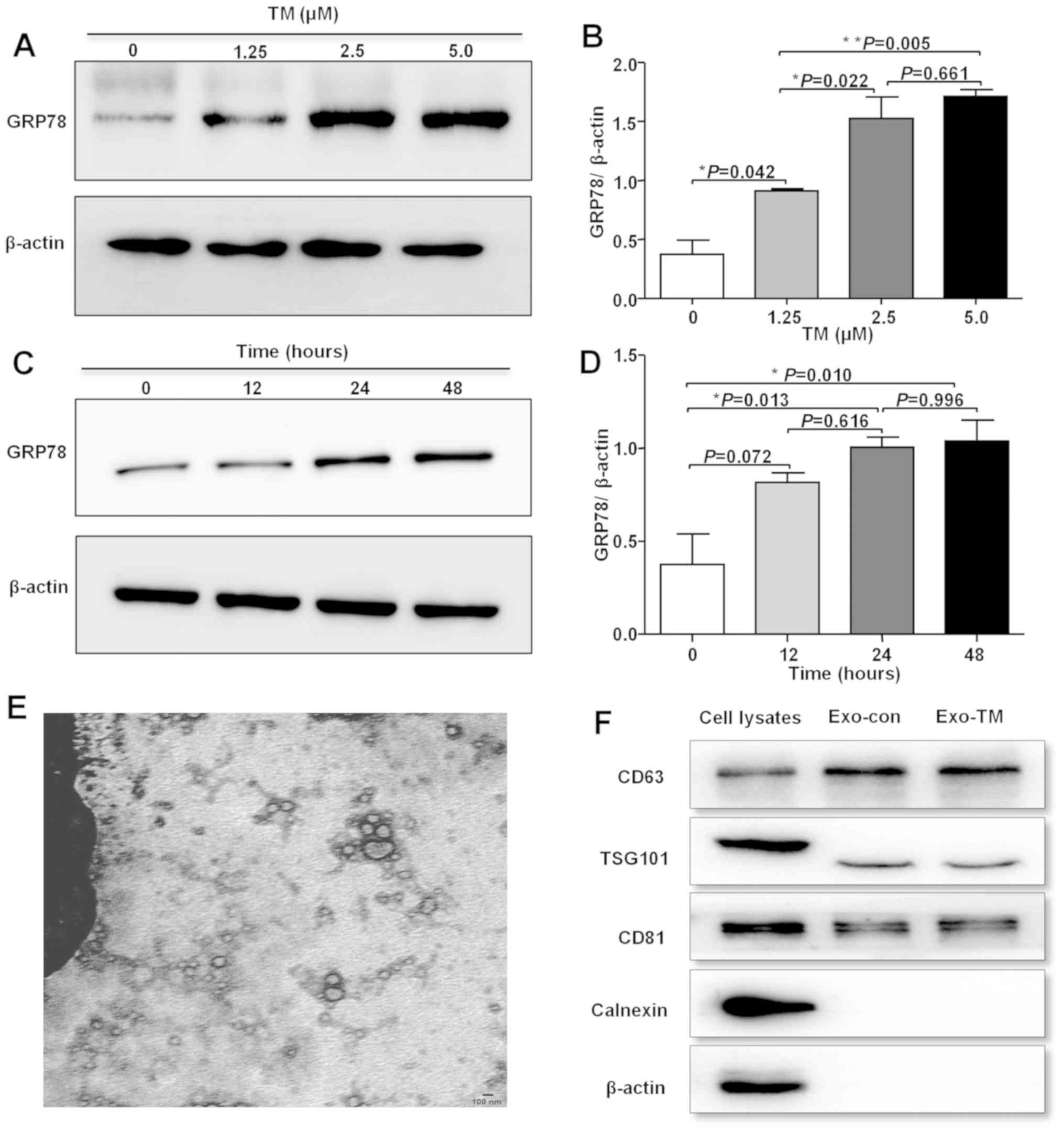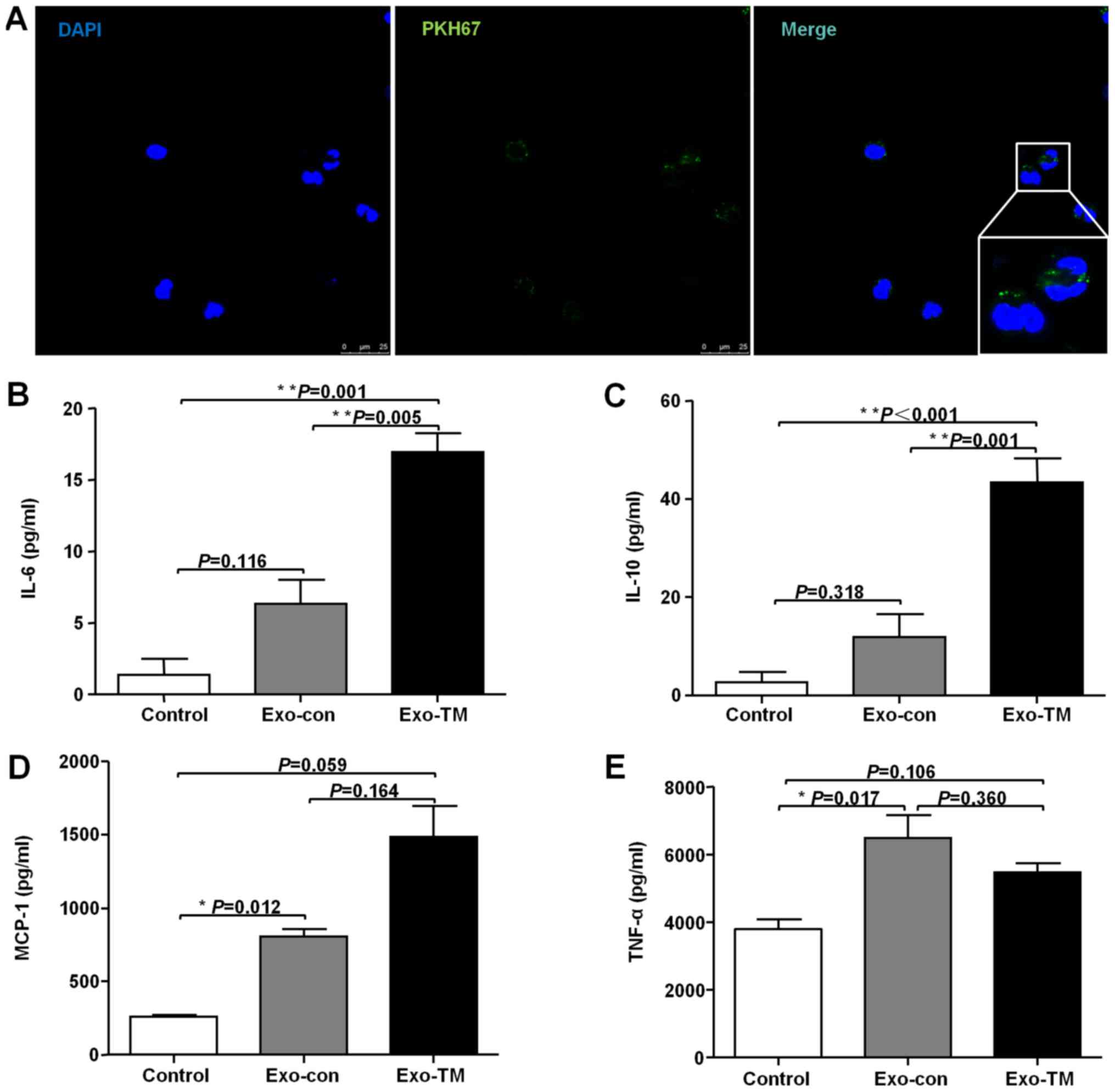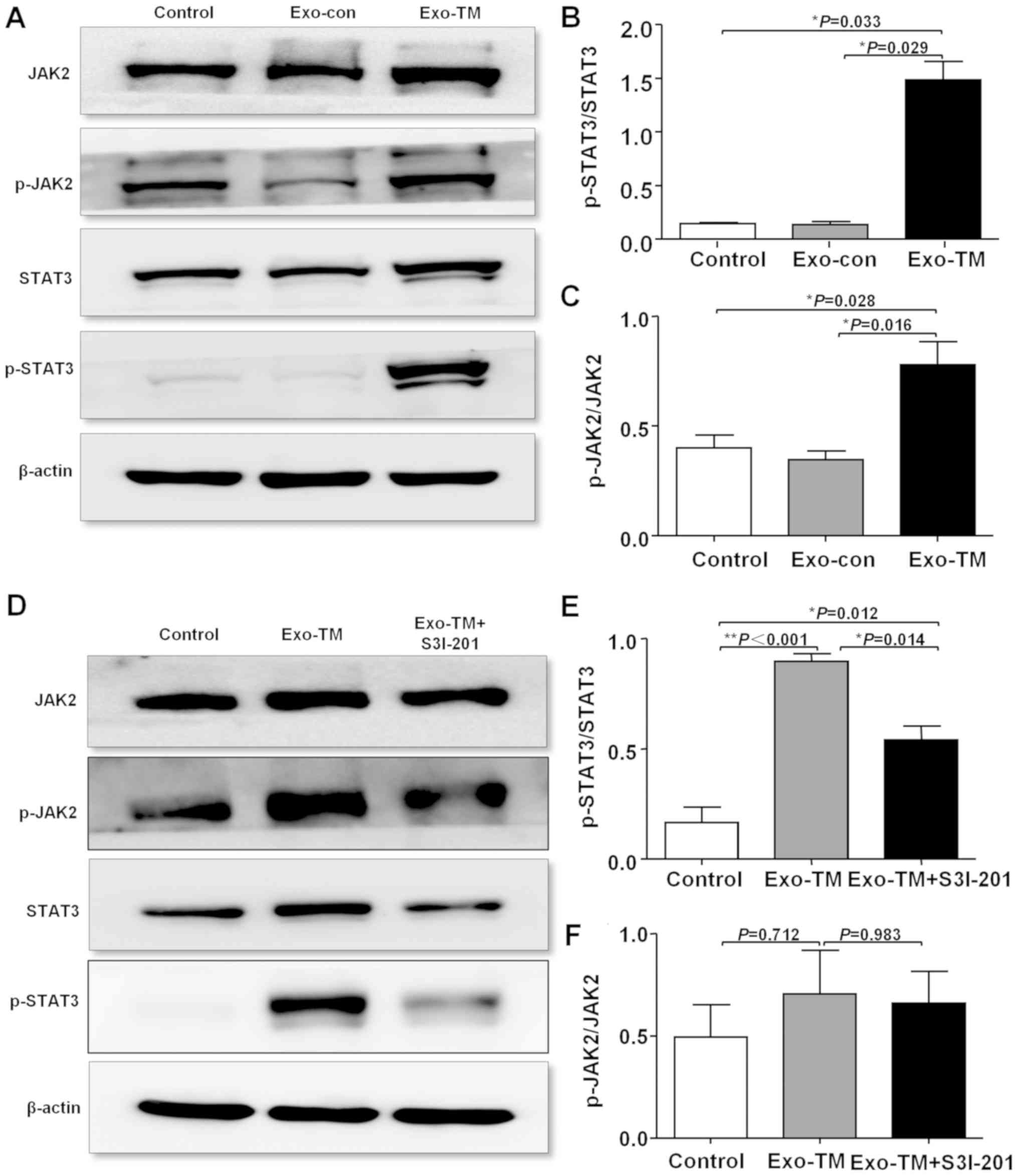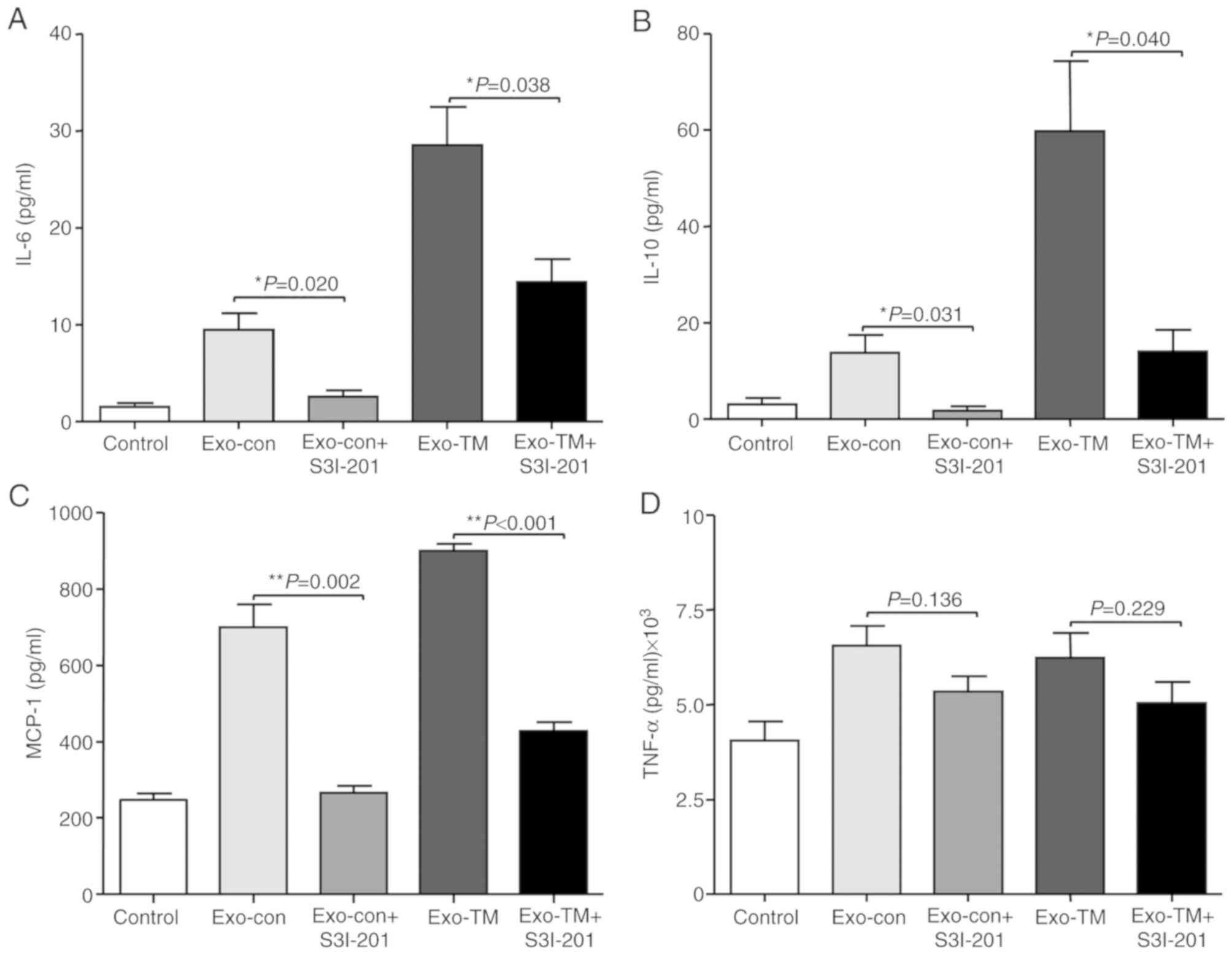|
1
|
Bray F, Ferlay J, Soerjomataram I, Siegel
RL, Torre LA and Jemal A: Global cancer statistics 2018: GLOBOCAN
estimates of incidence and mortality worldwide for 36 cancers in
185 countries. CA Cancer J Clin. 68:394–424. 2018. View Article : Google Scholar : PubMed/NCBI
|
|
2
|
Forner A, Reig M and Bruix J:
Hepatocellular carcinoma. Lancet. 391:1301–1314. 2018. View Article : Google Scholar : PubMed/NCBI
|
|
3
|
Ringelhan M, Pfister D, O'Connor T,
Pikarsky E and Heikenwalder M: The immunology of hepatocellular
carcinoma. Nat Immunol. 19:222–232. 2018. View Article : Google Scholar : PubMed/NCBI
|
|
4
|
Cubillos-Ruiz JR, Bettigole SE and
Glimcher LH: Tumorigenic and immunosuppressive effects of
endoplasmic reticulum stress in cancer. Cell. 168:692–706. 2017.
View Article : Google Scholar : PubMed/NCBI
|
|
5
|
Wang M, Law ME, Castellano RK and Law BK:
The unfolded protein response as a target for anticancer
therapeutics. Crit Rev Oncol Hematol. 127:66–79. 2018. View Article : Google Scholar : PubMed/NCBI
|
|
6
|
Hetz C and Papa FR: The unfolded protein
response and cell fate control. Mol Cell. 69:169–181. 2018.
View Article : Google Scholar : PubMed/NCBI
|
|
7
|
Shen K, Johnson DW, Vesey DA, McGuckin MA
and Gobe GC: Role of the unfolded protein response in determining
the fate of tumor cells and the promise of multi-targeted
therapies. Cell Stress Chaperones. 23:317–334. 2018. View Article : Google Scholar : PubMed/NCBI
|
|
8
|
Rubio-Patiño C, Bossowski JP, Chevet E and
Ricci JE: Reshaping the immune tumor microenvironment through IRE1
signaling. Trends Mol Med. 24:607–614. 2018. View Article : Google Scholar : PubMed/NCBI
|
|
9
|
Yoo YS, Han HG and Jeon YJ: Unfolded
protein response of the endoplasmic reticulum in tumor progression
and immunogenicity. Oxid Med Cell Longev. 2017:29692712017.
View Article : Google Scholar : PubMed/NCBI
|
|
10
|
Rufo N, Garg AD and Agostinis P: The
unfolded protein response in immunogenic cell death and cancer
immunotherapy. Trends Cancer. 3:643–658. 2017. View Article : Google Scholar : PubMed/NCBI
|
|
11
|
Seelige R, Searles S and Bui JD:
Mechanisms regulating immune surveillance of cellular stress in
cancer. Cell Mol Life Sci. 75:225–240. 2018. View Article : Google Scholar : PubMed/NCBI
|
|
12
|
Ye L, Zhang Q, Cheng Y, Chen X, Wang G,
Shi M, Zhang T, Cao Y, Pan H, Zhang L, et al: Tumor-derived
exosomal HMGB1 fosters hepatocellular carcinoma immune evasion by
promoting TIM-1+ regulatory B cell expansion. J Immunother Cancer.
6:1452018. View Article : Google Scholar : PubMed/NCBI
|
|
13
|
Jella KK, Nasti TH, Li Z, Malla SR,
Buchwald ZS and Khan MK: Exosomes, their biogenesis and role in
inter-cellular communication, tumor microenvironment and cancer
immunotherapy. Vaccines (Basel). 6(pii): E692018. View Article : Google Scholar : PubMed/NCBI
|
|
14
|
Hu C, Chen M, Jiang R, Guo Y, Wu M and
Zhang X: Exosome-related tumor microenvironment. J Cancer.
9:3084–3092. 2018. View Article : Google Scholar : PubMed/NCBI
|
|
15
|
Li X, Wang Y, Wang Q, Liu Y, Bao W and Wu
S: Exosomes in cancer: Small transporters with big functions.
Cancer Lett. 435:55–65. 2018. View Article : Google Scholar : PubMed/NCBI
|
|
16
|
Chen X, Zhou J, Li X and Wang X, Lin Y and
Wang X: Exosomes derived from hypoxic epithelial ovarian cancer
cells deliver microRNAs to macrophages and elicit a tumor-promoted
phenotype. Cancer Lett. 435:80–91. 2018. View Article : Google Scholar : PubMed/NCBI
|
|
17
|
Seo N, Akiyoshi K and Shiku H:
Exosome-mediated regulation of tumor immunology. Cancer Sci.
109:2998–3004. 2018. View Article : Google Scholar : PubMed/NCBI
|
|
18
|
Liu J, Fan L, Yu H, Zhang J, He Y, Feng D,
Wang F, Li X, Liu Q, Li Y, et al: Endoplasmic reticulum stress
causes liver cancer cells to release exosomal miR-23a-3p and
up-regulate programmed death ligand 1 expression in macrophages.
Hepatology. 70:241–258. 2019.PubMed/NCBI
|
|
19
|
Noy R and Pollard JW: Tumor-associated
macrophages: From mechanisms to therapy. Immunity. 41:49–61. 2014.
View Article : Google Scholar : PubMed/NCBI
|
|
20
|
Huang Y, Liu K, Li Q, Yao Y and Wang Y:
Exosomes function in tumor immune microenvironment. Adv Exp Med
Biol. 1056:109–122. 2018. View Article : Google Scholar : PubMed/NCBI
|
|
21
|
Cui J, Zhang F, Cao W, Wang Y, Liu J, Liu
X, Chen T, Li L, Tian J and Yu B: Erythropoietin alleviates
hyperglycaemia-associated inflammation by regulating macrophage
polarization via the JAK2/STAT3 signalling pathway. Mol Immunol.
101:221–228. 2018. View Article : Google Scholar : PubMed/NCBI
|
|
22
|
Kudo M: Systemic therapy for
hepatocellular carcinoma: Latest advances. Cancers (Basel).
10(pii): E4122018. View Article : Google Scholar : PubMed/NCBI
|
|
23
|
Kulik L and El-Serag HB: Epidemiology and
management of hepatocellular carcinoma. Gastroenterology.
156:477–491.e1. 2019. View Article : Google Scholar : PubMed/NCBI
|
|
24
|
Lapitz A, Arbelaiz A, Olaizola P, Aranburu
A, Bujanda L, Perugorria MJ and Banales JM: Extracellular vesicles
in hepatobiliary malignancies. Front Immunol. 9:22702018.
View Article : Google Scholar : PubMed/NCBI
|
|
25
|
da Motta Girardi D, Correa TS, Crosara
Teixeira M and Dos Santos Fernandes G: Hepatocellular carcinoma:
Review of targeted and immune therapies. J Gastrointest Cancer.
49:227–236. 2018. View Article : Google Scholar : PubMed/NCBI
|
|
26
|
Roth GS and Decaens T: Liver
immunotolerance and hepatocellular carcinoma: Patho-physiological
mechanisms and therapeutic perspectives. Eur J Cancer. 87:101–112.
2017. View Article : Google Scholar : PubMed/NCBI
|
|
27
|
Banerjee S and Zhang W: Endoplasmic
reticulum: Target for next-generation cancer therapy. Chembiochem.
19:2341–2343. 2018. View Article : Google Scholar : PubMed/NCBI
|
|
28
|
Corazzari M, Gagliardi M, Fimia GM and
Piacentini M: Endoplasmic reticulum stress, unfolded protein
response, and cancer cell fate. Front Oncol. 7:782017. View Article : Google Scholar : PubMed/NCBI
|
|
29
|
Osorio F, Tavernier SJ, Hoffmann E, Saeys
Y, Martens L, Vetters J, Delrue I, De Rycke R, Parthoens E, Pouliot
P, et al: The unfolded-protein-response sensor IRE-1α regulates the
function of CD8α+ dendritic cells. Nat Immunol. 15:248–257. 2014.
View Article : Google Scholar : PubMed/NCBI
|
|
30
|
Garg AD, Kaczmarek A, Krysko O,
Vandenabeele P, Krysko DV and Agostinis P: ER stress-induced
inflammation: Does it aid or impede disease progression? Trends Mol
Med. 18:589–598. 2012. View Article : Google Scholar : PubMed/NCBI
|
|
31
|
Grootjans J, Kaser A, Kaufman RJ and
Blumberg RS: The unfolded protein response in immunity and
inflammation. Nat Rev Immunol. 16:469–484. 2016. View Article : Google Scholar : PubMed/NCBI
|
|
32
|
Räihä MR and Puolakkainen PA:
Tumor-associated macrophages (TAMs) as biomarkers for gastric
cancer: A review. Chronic Dis Transl Med. 4:156–163.
2018.PubMed/NCBI
|
|
33
|
Chen W, Jiang J, Xia W and Huang J:
Tumor-related exosomes contribute to tumor-promoting
microenvironment: An immunological perspective. J Immunol Res.
2017:10739472017. View Article : Google Scholar : PubMed/NCBI
|
|
34
|
Zhang X, Zeng Y, Qu Q, Zhu J, Liu Z, Ning
W, Zeng H, Zhang N, Du W, Chen C and sHuang JA: PD-L1 induced by
IFN-γ from tumor-associated macrophages via the JAK/STAT3 and
PI3K/AKT signaling pathways promoted progression of lung cancer.
Int J Clin Oncol. 22:1026–1033. 2017. View Article : Google Scholar : PubMed/NCBI
|
|
35
|
Jeong SK, Kim JS, Lee CG, Park YS, Kim SD,
Yoon SO, Han DH, Lee KY, Jeong MH and Jo WS: Tumor associated
macrophages provide the survival resistance of tumor cells to
hypoxic microenvironmental condition through IL-6 receptor-mediated
signals. Immunobiology. 222:55–65. 2017. View Article : Google Scholar : PubMed/NCBI
|
|
36
|
Ruffell B, Chang-Strachan D, Chan V,
Rosenbusch A, Ho CM, Pryer N, Daniel D, Hwang ES, Rugo HS and
Coussens LM: Macrophage IL-10 blocks CD8+ T cell-dependent
responses to chemotherapy by suppressing IL-12 expression in
intratumoral dendritic cells. Cancer Cell. 26:623–637. 2014.
View Article : Google Scholar : PubMed/NCBI
|
|
37
|
Ibi M, Horie S, Kyakumoto S, Chosa N,
Yoshida M, Kamo M, Ohtsuka M and Ishisaki A: Cell-cell interactions
between monocytes/macrophages and synoviocyte-like cells promote
inflammatory cell infiltration mediated by augmentation of MCP-1
production in temporomandibular joint. Biosci Rep. 38(pii):
BSR201712172018. View Article : Google Scholar : PubMed/NCBI
|
|
38
|
Hultgren EM, Patrick ME, Evans RL, Stoos
CT and Egland KA: SUSD2 promotes tumor-associated macrophage
recruitment by increasing levels of MCP-1 in breast cancer. PLoS
One. 12:e01770892017. View Article : Google Scholar : PubMed/NCBI
|
|
39
|
Chen Y, Wen H, Zhou C, Su Q, Lin Y, Xie Y,
Huang Y, Qiu Q, Lin J, Huang X, et al: TNF-α derived from M2
tumor-associated macrophages promotes epithelial-mesenchymal
transition and cancer stemness through the Wnt/β-catenin pathway in
SMMC-7721 hepatocellular carcinoma cells. Exp Cell Res. 378:41–50.
2019. View Article : Google Scholar : PubMed/NCBI
|
|
40
|
Wu X, Tao P, Zhou Q, Li J, Yu Z, Wang X,
Li J, Li C, Yan M, Zhu Z, et al: IL-6 secreted by cancer-associated
fibroblasts promotes epithelial-mesenchymal transition and
metastasis of gastric cancer via JAK2/STAT3 signaling pathway.
Oncotarget. 8:20741–20750. 2017. View Article : Google Scholar : PubMed/NCBI
|
|
41
|
Zhao X, Fan W, Xu Z, Chen H, He Y, Yang G,
Yang G, Hu H, Tang S, Wang P, et al: Inhibiting tumor necrosis
factor-alpha diminishes desmoplasia and inflammation to overcome
chemoresistance in pancreatic ductal adenocarcinoma. Oncotarget.
7:81110–81122. 2016. View Article : Google Scholar : PubMed/NCBI
|
|
42
|
Wan Z, Gao X, Dong Y, Zhao Y, Chen X, Yang
G and Liu L: Exosome-mediated cell-cell communication in tumor
progression. Am J Cancer Res. 8:1661–1673. 2018.PubMed/NCBI
|
|
43
|
Ding YF, Wu ZH, Wei YJ, Shu L and Peng YR:
Hepatic inflammation-fibrosis-cancer axis in the rat hepatocellular
carcinoma induced by diethylnitrosamine. J Cancer Res Clin Oncol.
143:821–834. 2017. View Article : Google Scholar : PubMed/NCBI
|
|
44
|
Théry C, Witwer KW, Aikawa E, Alcaraz MJ,
Anderson JD, Andriantsitohaina R, Antoniou A, Arab T, Archer F,
Atkin-Smith GK, et al: Minimal information for studies of
extracellular vesicles 2018 (MISEV2018): A position statement of
the international society for extracellular vesicles and update of
the MISEV2014 guidelines. J Extracell Vesicles. 7:15357502018.
View Article : Google Scholar : PubMed/NCBI
|
|
45
|
Belmokhtar K, Bourguignon T, Worou ME,
Khamis G, Bonnet P, Domenech J and Eder V: Regeneration of three
layers vascular wall by using BMP2-treated MSC involving HIF-1α and
Id1 expressions through JAK/STAT pathways. Stem Cell Rev Rep.
7:847–859. 2011. View Article : Google Scholar : PubMed/NCBI
|
|
46
|
Laudisi F, Cherubini F, Monteleone G and
Stolfi C: STAT3 Interactors as potential therapeutic targets for
cancer treatment. Int J Mol Sci. 19(pii): E17872018. View Article : Google Scholar : PubMed/NCBI
|
|
47
|
Wang Y, Shen Y, Wang S, Shen Q and Zhou X:
The role of STAT3 in leading the crosstalk between human cancers
and the immune system. Cancer Lett. 415:117–128. 2018. View Article : Google Scholar : PubMed/NCBI
|
|
48
|
Siddiquee K, Zhang S, Guida WC, Blaskovich
MA, Greedy B, Lawrence HR, Yip ML, Jove R, McLaughlin MM, Lawrence
NJ, et al: Selective chemical probe inhibitor of Stat3, identified
through structure-based virtual screening, induces antitumor
activity. Proc Natl Acad Sci USA. 104:7391–7396. 2007. View Article : Google Scholar : PubMed/NCBI
|















